Do Dogs Eat Less in Summer? [Why?]
As summer approaches, days become warmer and longer, and the heat affects not only humans but our furry friends as well. One common question dog owners have is whether their dogs eat less in the summer months. The answer is yes, dogs do tend to eat less in summer, but several factors contribute to their change in appetite.
The summer heat causes dogs to be less active, leading to a reduction in their energy requirements. Consequently, their bodies adjust by lessening their need for food intake. Additionally, like humans who prefer lighter meals during warmer months, dogs’ appetites decrease as their bodies try to process food more efficiently to keep them cool.
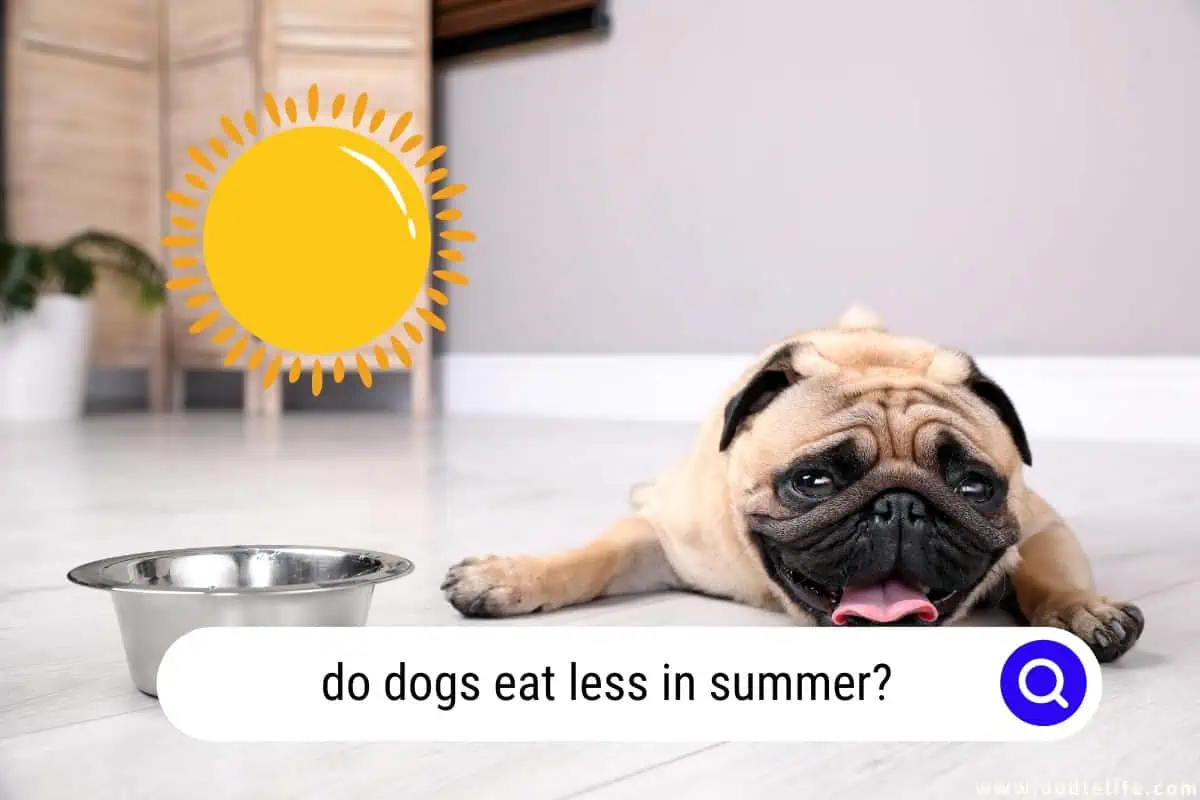
Of course, no two dogs are the same, and individual responses to summer temperatures will vary.
It is essential for dog owners to monitor their pets’ eating habits during the summer, as a complete loss of appetite might signal a more serious issue. If you notice any concerning changes, don’t hesitate to consult with your veterinarian. But rest assured, a moderate decrease in food consumption during the hot summer months is generally a normal, healthy response from our canine companions.
Do Dogs Eat Less in Summer?
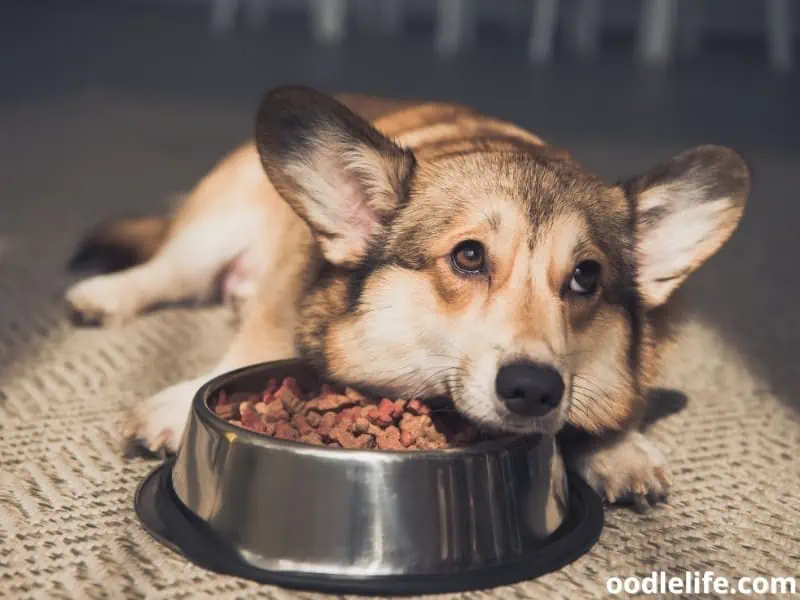
Hormonal Changes in Mammals
During the summer months, dogs may experience hormonal changes that contribute to a decreased appetite. This natural adjustment helps dogs conserve energy and avoid overheating. So don’t be surprised if Fido isn’t as enthusiastic about mealtime as usual!
As an example, consider humans sweating during heat – it’s a natural way our body goes into survival mode. In a similar way, dogs’ bodies react to increased temperatures by signaling their systems to save energy and reduce appetite.
Shifts in Cellular Metabolism
Another reason that dogs may eat less in summer is due to shifts in cellular metabolism. Higher temperatures can lead to cells working overtime to maintain essential functions, which in turn can cause a drop in energy levels. Consequently, this may result in a diminished need for food.
Imagine your phone’s battery draining faster in extreme temperatures – the same principle applies to dogs’ metabolism. The heat makes cells work harder, which then leads to a decreased appetite.
To help your furry friend maintain a healthy eating pattern, try offering them a smaller portion or more frequent, lighter meals. Also, ensure they have enough water to stay hydrated, as dehydration could further decrease their appetite. Finally, don’t forget to provide them with lots of shade and a cool place to rest – a happy and comfortable dog is more likely to eat well!
Reasons for Decreased Appetite
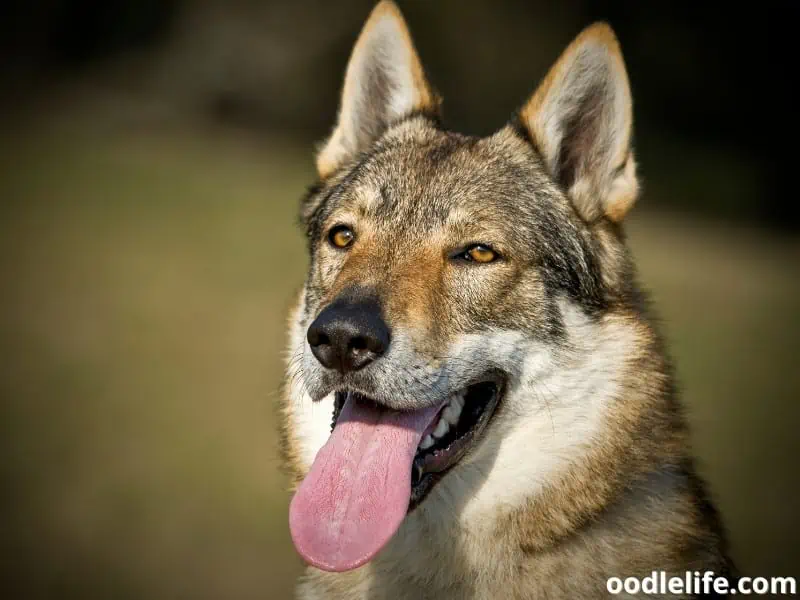
High Temperatures
During the summer months, high temperatures can have a direct impact on a dog’s appetite. Just like humans, dogs tend to eat less when it’s extremely hot outside. Their bodies try to maintain a stable internal temperature, and eating generates heat, which can make them feel uncomfortable in the sweltering summer weather.
Less Active
In addition to the impact of high temperatures, dogs are generally less active during the summer. This decrease in activity leads to a decrease in energy requirements, which in turn results in a decreased appetite. With more time spent lounging in the shade and enjoying the cool blast of the AC, it’s no wonder our canine companions tend to eat less during these warmer months.
Infection and Disease
Summer can bring about a variety of infections and diseases for dogs. These may include seasonal allergies, skin infections, and even tick- or mosquito-borne illnesses. When dogs are under the weather, their appetite might decrease as their bodies focus on fighting off the infection.
Symptoms such as diarrhea or vomiting can also contribute to a dog’s reluctance to eat.
Seasonal Changes
Finally, it’s essential to recognize that dogs naturally have fluctuations in their appetite throughout the year. In the winter months, dogs often eat more to get the extra energy needed to keep warm. In contrast, their energy requirements decrease during the summer, which in turn could lead to them eating less.
This natural rhythm of seasonal changes is just one more factor contributing to a decreased appetite for dogs during the summer months.
So, remember to take these factors into account when we notice our four-legged friends seem less interested in their food on those sunny days. Just like you might prefer a light salad over a heavy meal on a hot summer day, your dog’s appetite may be reflecting the season’s impact on their body and energy needs.
Food Intake and Meal Modifications
As the summer season arrives, you may notice your dog’s appetite changing. It’s normal for dogs to eat less in hot weather as their activity levels decrease and their bodies adapt to the rising temperatures. In this section, we will discuss alternative food options and feeding tips to help ensure your dog stays healthy and happy throughout the summer months.
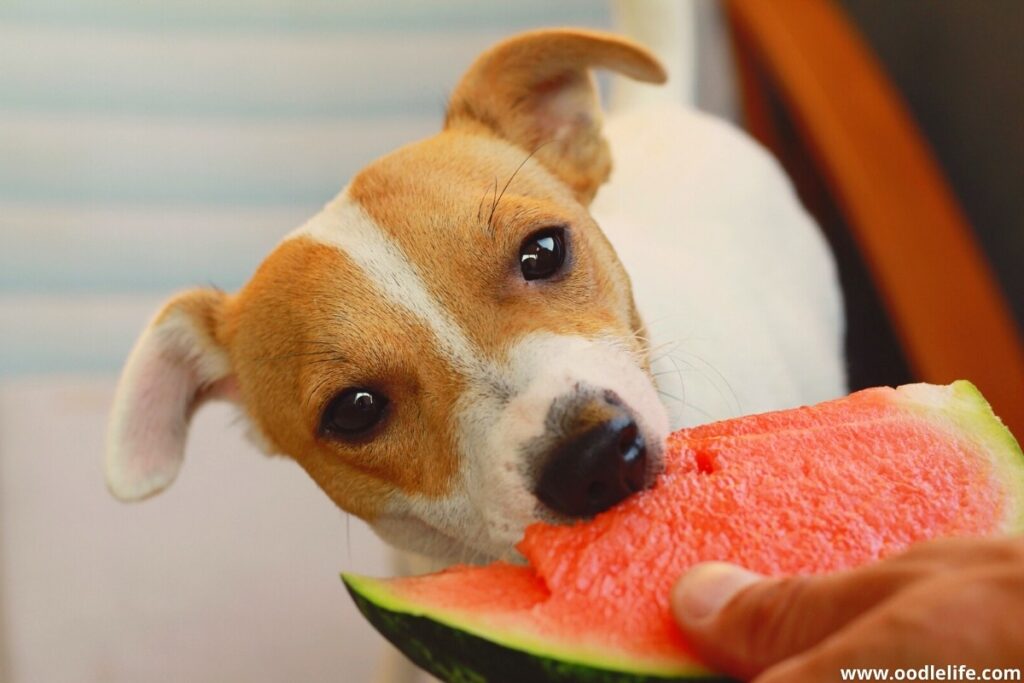
Alternative Food Options
During summer, you can try offering your dog some cooling and lighter food options. For instance, you may choose to switch from chicken to whitefish or carp as sources of protein, which are considered more cooling. Other options include beef tripe, liver, kidneys, and even rabbit.
For fruits and veggies, consider adding some refreshing options like watermelon, cucumber, or blueberries to your dog’s meals. Besides providing essential nutrients, these options will also help keep your dog hydrated.
If your dog enjoys eggs, adding them to their diet is another great protein source. In the summers, you can freeze some blended pumpkin, sweet potato, or fruit to create a tasty doggy ice cream that will help cool them off.
Feeding Tips
During the hot summer months, it’s essential to pay attention to your dog’s food intake and modify their meals according to their needs. Here are some ideas to make mealtime more appealing during those scorching days:
- Adjust meal timing so your dog eats during the cooler parts of the day (morning and evening).
- Offer smaller meals throughout the day instead of two large ones.
- Switch between dry and wet food to entice their appetite, or consider adding some flavorful broth to dry dog food.
- Provide plenty of cold water and even offer ice cubes for your pup to munch on, which not only help with hydration but also keep your dog entertained.
Remember not to push your canine companion to eat if they’re not showing food-seeking behavior. It’s essential to keep an eye on your dog’s overall health throughout the summer and consult with your vet if you have concerns about their weight or food intake.
Oh, and no matter how tempting it might be, try to resist the puppy dog eyes when they catch a glimpse of your human ice cream – stick to the doggy-friendly options instead!
Health and Well-Being during Summer
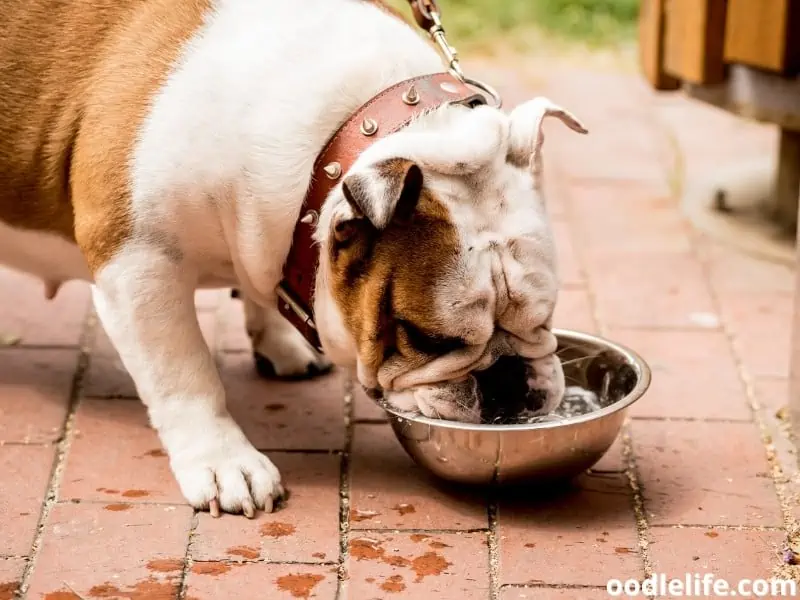
Water Consumption
During the hot summer months, it’s essential to keep your furry friend well-hydrated. Dogs may eat less in summer due to several factors, including heat, lower activity levels, and changes in metabolism. In response, offering them constant access to fresh water is vital.
Dry dog food might not be ideal during this time, but adding some moisture to their meals can also help keep them hydrated. You can think of their favorite water bowl as their personal summertime sipper, except they can’t share pictures of it on Instagram!
Exercise and Energy Requirements
When the mercury rises, our canine companions’ energy requirements might change. They might prefer lounging in the shade instead of their regular games of fetch. Smart move, pup! It’s important to adjust their exercise routines according to the sweltering heat.
One tip is to schedule walks and playtimes during cooler periods of the day, such as early morning or late evening. Additionally, watch out for signs like excessive panting, lack of energy, or sudden weight loss. These could be indicators that their exercise routine needs tweaking or a veterinarian visit.
Remember, a tired dog might not be as interested in food, so balance is key.
Navigating Appetite Changes
Reduced appetite is common among dogs during summer. However, it’s crucial to differentiate between a seasonal, harmless appetite change and a total loss of appetite. If your dog isn’t eating at all, nausea, pain, or an obstruction could be to blame, and it’s time to call the vet.
Taking care of Fido during high temperatures might also involve adjusting their diet and medication if needed. A call to the vet can help ensure you’re making the right decisions, though. Regular check-ups can also help keep your trusty tail-wagger in top shape.
In conclusion, properly caring for your dog during summer months is essential for maintaining their well-being. This includes monitoring their water consumption, adjusting exercise routines, and keeping a watchful eye on their appetites. As you keep your pup cool and comfortable, you might just find yourself wishing you could join their doggie pool party!
Recognizing and Addressing Concerns
During hot summer days, it’s not uncommon for dogs to eat less than usual. However, it’s essential to recognize when this behavior goes beyond normal seasonal fluctuations and becomes a cause for concern. In this section, we’ll discuss common issues that can cause appetite loss, including dental problems, liver disease, and other conditions.
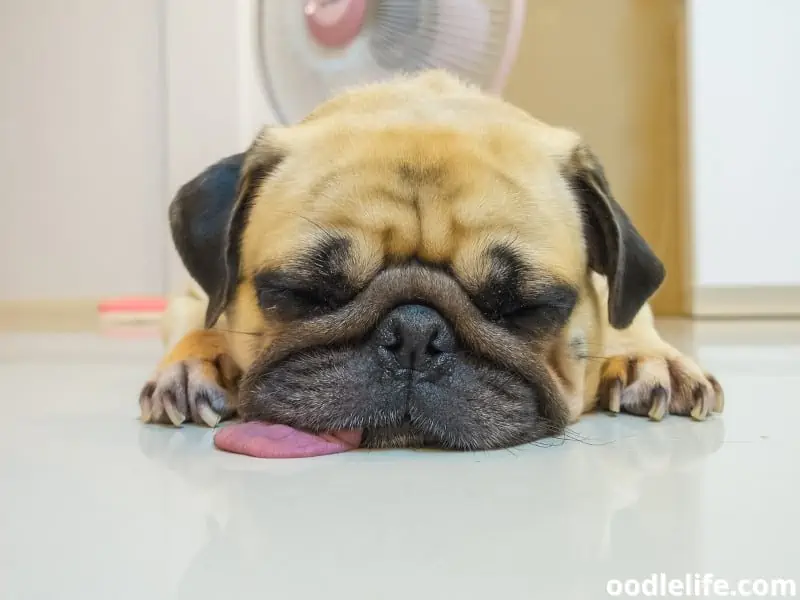
Dental Issues
Just like humans, dogs can suffer from dental problems that make eating painful. This can lead to reduced appetite, especially during hotter months when their fur makes them feel warmer than usual. Keep an eye out for signs like bad breath, inflamed gums, and discomfort while eating.
To avoid any dental issues, ensure regular check-ups with a vet and brush your dog’s teeth regularly.
- Inspect your dog’s mouth for any foreign objects
- Provide chew toys to help clean their teeth and gums
- Monitor your dog for any behavioral changes related to eating or dental pain
Liver Disease
Liver disease is another condition that might cause appetite loss in dogs. If you notice your dog eating less, accompanied by other symptoms like lethargy, vomiting, or diarrhea, it’s essential to consult your veterinarian. Liver disease can be especially prevalent in regions with hotter climates, such as the South of France, where dogs might struggle to regulate their body temperature.
- Be aware of your dog’s overall health and check for other symptoms
- Consult your veterinarian if you have concerns about liver disease
- Ensure your dog stays cool and hydrated during hot weather
Other Conditions
Besides dental issues and liver disease, many other conditions can cause your dog to eat less during the summer. For example, heat-related illnesses like heatstroke can make dogs feel sick, which may lead to a loss of appetite.
Stress and anxiety can also impact a dog’s eating habits. Dogs might experience higher levels of anxiety if their daily routines change during summer, like spending more time outdoors or traveling.
- Monitor your dog for signs of overheating, such as heavy panting, drooling, or reluctance to move
- Offer cool, fresh water and avoid exercising in extreme heat
- Be mindful of potential stressors during summer and provide a comfortable environment for your dog
Remember, it’s normal for dogs to eat less during summer due to the heat, but always keep an eye on your dog’s health to ensure they’re not suffering from a more serious issue.